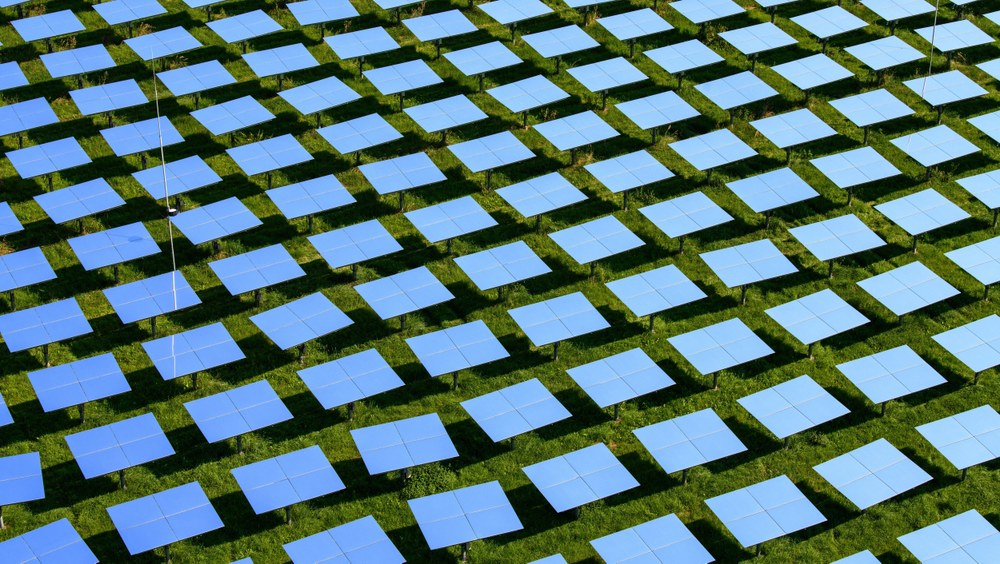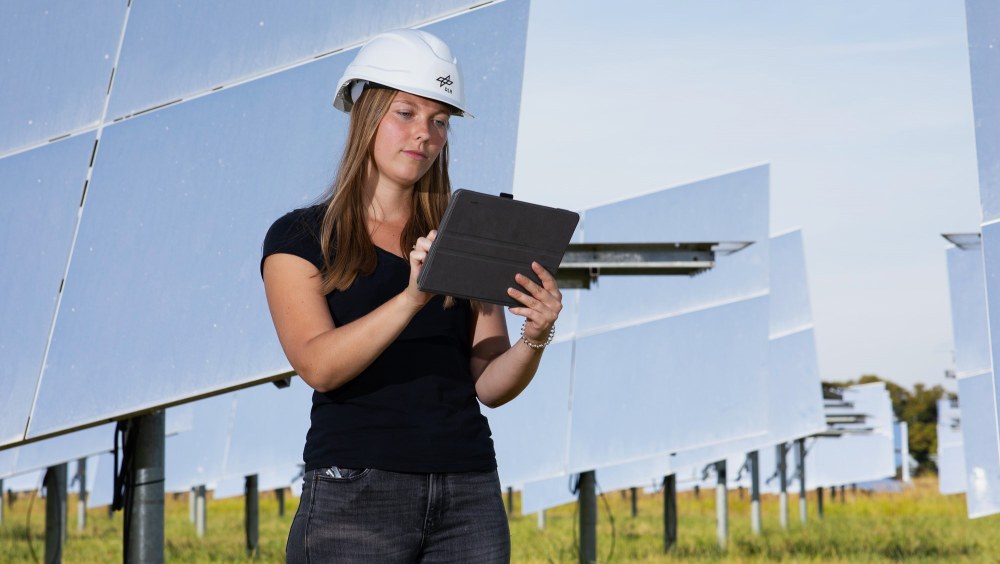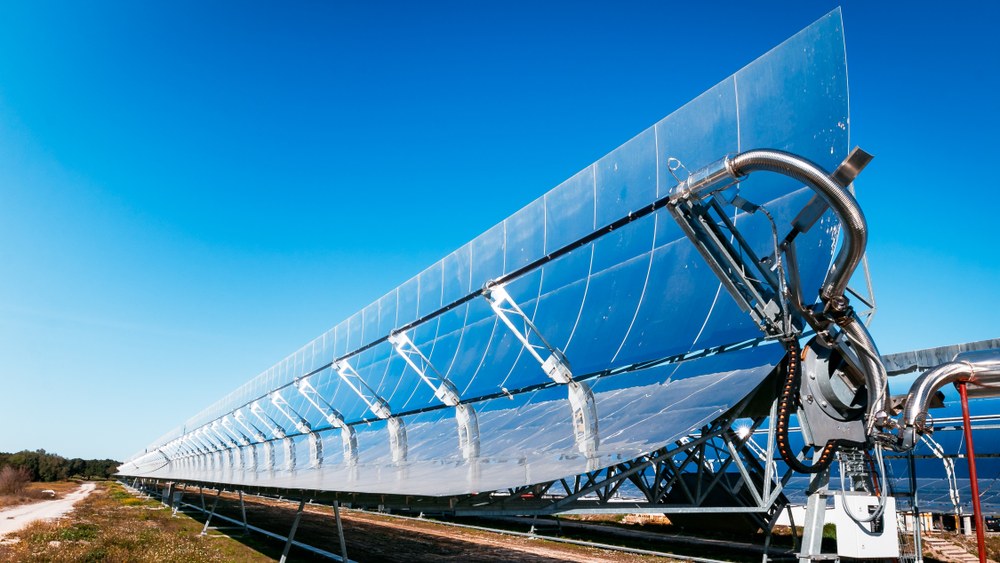Concentrating Solar Technologies department



The department focuses on concentrating solar technologies for various applications such as electricity generation, thermochemical processes and process heat. These technologies utilise solar energy not only for direct power generation during sunshine, but also for controllable supply using thermal storage systems to ensure continuous power even in the absence of direct sunlight. Our current research focuses on solar tower systems using molten salt, air, or particles as heat transfer media and molten salt parabolic trough systems.
We are working to ensure that concentrating solar power and hybrid renewable energy systems can be operated in a cost-effective, efficient and controllable manner. Digital twins and artificial intelligence technologies enable more automated and autonomous operation of complex solar systems. We also develop and validate innovative components and system concepts, as well as intelligent operating strategies for concentrating solar thermal systems.
Concentrating solar thermal systems offer a cost-effective and controllable option for providing electricity or process heat when combined with thermal storage. The main Storage technologies in this area are solar tower and parabolic trough systems.
For solar tower systems, the focus is on the development of solar receivers. These collect the concentrated solar radiation, convert it into high-temperature heat and transfer it to a heat transfer medium. We are working on increasing the operating temperature and using low-cost materials.
For parabolic trough systems, our research is focused on replacing thermal oil with molten salt, which can lead to significant cost reductions. At the same time, we are researching innovative collector designs and developing new applications, particularly for process heat.
Thanks to decades of continuous work in this field, the department has globally recognised scientific expertise and works in close cooperation with industry. In addition, we have a unique research infrastructure, including the solar tower facility in Jülich and a molten salt parabolic trough facility operated in partnership with the University of Évora (Portugal).
Core competences of the department
- Development and large-scale testing of solar receivers for different temperature ranges and with different heat transfer media, including molten salt, air and solid particles
- Research and validation of solar concentrators for solar thermal and solar chemical applications
- Steady-state and transient simulation of concentrating solar thermal systems and components using in-house ray tracing tools and other proprietary simulation software as well as commercial tools like CAD (Computer Aided Design), FEM (Finite Element Method), CFD (Computational Fluid Dynamics) and DEM (Discrete Element Method)
- Operation of a 10 Megawatt solar tower test facility with air, molten salt and particle test facilities in Jülich and joint operation of a 3.5 Megawatt parabolic trough test platform with molten salt in Évora (Portugal) in cooperation with the University of Évora
- Digitalisation and automation of solar tower and parabolic trough systems
Departmental structure
The department is divided into four groups. They work at the Cologne, Stuttgart and Jülich sites:
Fluid systems
The research group deals with the further development of molten salt technologies for parabolic trough and solar tower systems as well as for industrial process heat systems.
Particle systems
The team develops particle receivers and systems for temperatures up to 1.000 Degrees Celsius, mainly the rotating particle receiver, but also particle heat exchangers for process heat applications.
Simulation and digitisation
The group works on control and operation strategies for solar tower power plants based on the latest information technologies, on the simulation of solar processes and the development of corresponding software, and on the further development of open volumetric receivers.
Jülich solar tower power plant
The team operates the plant and carries out numerous large-scale experiments. The scientific focus is on the development of solar concentrator systems and flux density measurement methods.
